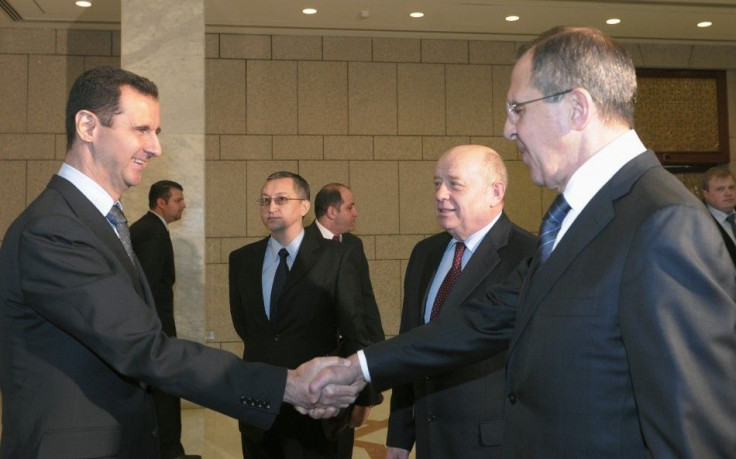Assad Agrees to Russia's Bid to End Violence

Syria's President Bashar Assad promised to stop the bloodshed that has engulfed his country for the past 11 months. Assad reached an agreement with Russian Foreign Minister Sergei Lavrov, who was in Damascus on Tuesday.
The president of Syria assured us he was completely committed to the task of stopping violence, regardless of where it may come from', Lavrov said, according to the Interfax news agency.
Assad himself stated: Syria from the beginning has welcomed any efforts that back the Syrian solution to the crisis.
But undermining the potential progress made were the Syrian Interior Ministry's insistence that combating armed gangs and instigators would continue.
Operations to hunt down terrorist groups will continue until security and order are re-established in all neighborhoods of Homs and its environs and until we overcome all armed persons terrorizing citizens, the ministry said a statement.
Since the protests and subsequent violence started in Syria in March, Assad's government has claimed that terrorists and gangs were responsible for the deaths. Like Moammar Gadhafi in Libya, Assad has downplayed the unrest in his country and blamed the violence on foreign parties.
Every 'brute reaction' was by an individual, not by an institution, that's what you have to know, Assad said in an interview with Barbara Walters in December.
There is a difference between having a policy to crack down and between having some mistakes committed by some officials. There is a big difference.
There was no command to kill or to be brutal, the Syrian president added. Most of the people that have been killed are supporters of the government, not... vice versa.
The United Nations estimates that at least 6,000 people have been killed in Syria since protests began. On the day of Lavrov's visit, government forces shelled the city of Homs with mortars, and hundreds of people have died in cities around the country since Friday.
In recent weeks, the Free Syrian Army (FSA) has restarted its battle with Syrian security forces in Homs. The FSA, a rebel collective made up of defected soldiers, has attacked government troops in an effort to protect protestors and destabilize the Assad regime.
International Reaction
The Syria-Russia agreement came on the heels of Western and Arab nations pulling their diplomats from Syria. The Gulf Cooperation Council -- made up of Saudi Arabia, Bahrain, Kuwait, Oman, Qatar and the United Arab Emirates -- recalled their Syrian ambassadors on Tuesday, while France, England and the United States have already done the same.
We have seen the reports of Lavrov's visit. Our position hasn't changed. We will continue to judge the Syrian regime by its actions, not its words, a spokesperson for UK Foreign Secretary William Hague told The Telegraph.
The United Nations Security Council tried to pass a resolution on Syria on Saturday, but met with a veto from China and Russia.
Russia, which has a significant military and economic stake in Syria, said it blocked the resolution because it wanted to see how productive the meeting between Lavrov and Assad would be be first.
© Copyright IBTimes 2024. All rights reserved.











